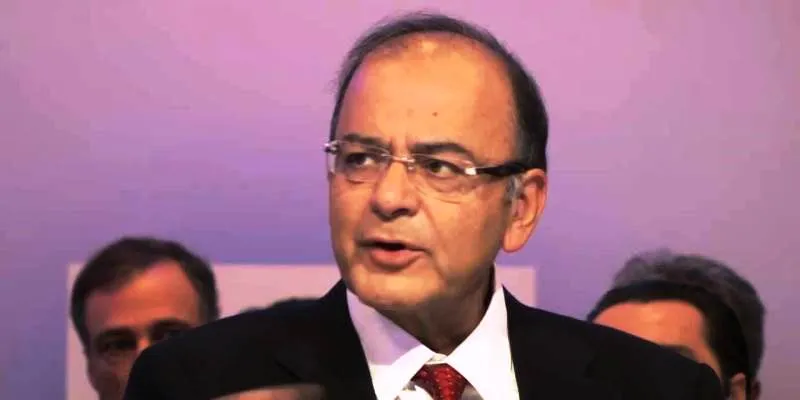On Day 43 of demonetisation, FM Jaitley explains how India's economy will change
The finance minister admitted that the impact of demonetisation on the economy would be felt for the next two quarters but emphasised on the expected growth in numbers in the next 10 to 15 quarters
“The country needs cleaner GDP. And the old normal needs to adjust to new normal,” Arun Jaitley, Union Minister for Finance and Corporate Affairs, insisted at Digital Economy Forum 2016.

The Union finance minister spoke on the developments of the past 42 days since the announcement of withdrawal of high denomination notes from circulation.
In Jaitley’s words, the prime minister had to make a very conscious choice - there was a lot of pressure on banks. Private sector investment was slow. So, India could have waited for the adverse world economy to turn around and for things to improve on their own. Also, a large part of the Indian economy is informal and out of the banking and taxation system. “If this drastic step (demonetisation) hadn’t been taken, even the debate of non-compliance and tax evasion would have been ethically or morally improper,” he argued.
Now, for a country which is a developing economy and aspires to be a developed one, this kind of tax evasive business model is unsustainable, Jaitley said. “Therefore, we had to go through a 50-day period of remonetisation. This is the time period we have to do the catalyzation of digitisation of the whole Indian economy. During this time, informal will start merging with the formal,” he explained.
Going digital
But, isn’t the country lacking infrastructure to add the informal sector to the digital world?
According to the Union minister, there might be some problems of digital infrastructure in the country, but the present network shouldn’t be underestimated and just needs a bit of support. For that, the finance ministry has waived off all charges on online transactions. The move has also worked well, if Jaitley is to be believed. Today, over 55 per cent of petrol pumps in the country have gone digital. And such developments have taken place in other businesses as well.
The Union minister said that though the country suffered pain during the transition period between cessation of legal tender and remonetisation, it also gained immensely.
Replying to Ex-PM
Jaitley was questioned about former Prime Minister Dr Manmohan Singh’s speech in the Upper House of Parliament a few weeks ago - when it was going through a logjam on the demonetisation issue - in which he said the economy would be impacted hugely by the noteban drive, with the GDP likely to fall by 2 per cent.
The finance minister admitted that the impact of demonetisation on the economy would be felt for the next two quarters but emphasised on the expected growth in numbers in the next 10 to 15 quarters.
He added: “Once you complete the remonetisation process, you should know what the country has ended up with. After the transition period, banks will have more money to lend. Once banks have low cost funds, the rate of interest will eventually come down. Monies which operated outside the banking system will be included in the system. The Indian economy needs to be take in a more ethical direction. You need to have a higher GDP, higher tax collection and a clear GDP as well.”
There have, however, been reports of a sharp fall in consumer demand in various sectors. When pointed out the fall, the minister said the case was different from sector to sector. In the rural economy, rabi sowing is higher than the last year, he said, and the aviation sector observed an increase in the number of travellers in the month of November.
“There might be postponement of spending in some sectors but it’s surely going to come back in the coming quarters. Whatever the digital impact, it will add to the existing economy,” Jaitley tried to explain.







